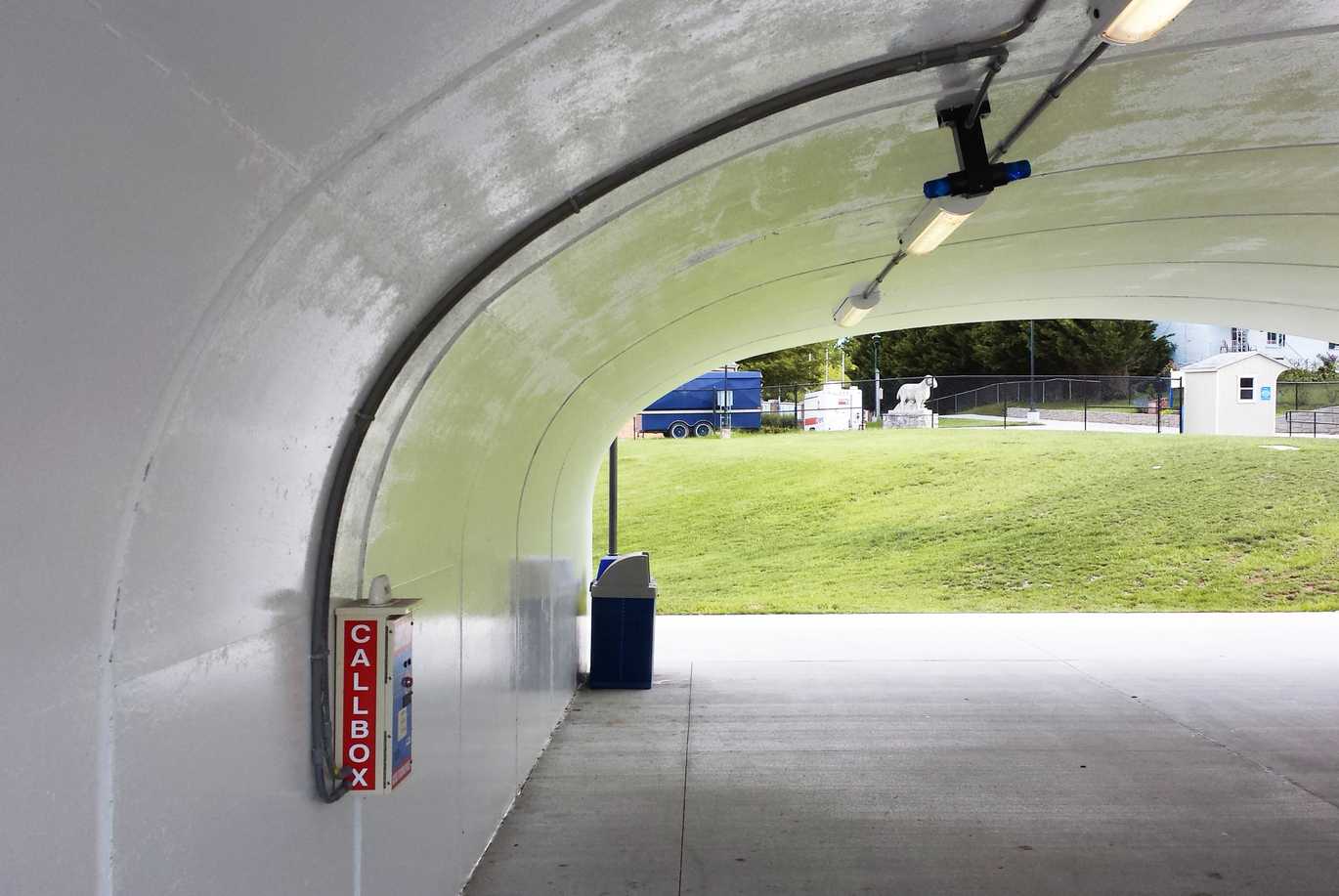In a day and age where technology is advancing, Shepherd University police officers say that the emergency call boxes around campus are a dated technology. They are encouraging students to call 911 instead of using the call boxes on campus for police, medical or fire emergencies.
“We are actively trying to encourage people to call 911 in the event of an emergency,” said John McAvoy, chief of police for Shepherd University. “This technology was used in the 80’s and 90’s before every student had a cellphone.”
McAvoy urges anyone with an emergency to call 911 via a cellphone as soon as possible. By doing so, they will be connected with a trained emergency communications specialist that can provide proper instructions.
“When you call 911 you get a professional dispatcher…if the patient is having a seizure or unconscious, the dispatcher can give directions on emergency aid until the ambulance gets on the scene,” McAvoy said.
McAvoy also offered this advice, “If you are being followed, please don’t stop. Get to a safe place, while you are talking on your cellphone, talking to a dispatcher.”
Jordan Redman, a Shepherd University senior knows the importance of the emergency call boxes after an attack during her sophomore year.
Officers responded to her call box activation in “five minutes at the most,” Redman said. “Someone came up behind me and hit me over the head and continued beating me until I passed out,” Redman said.
“I think (the call boxes) can be very useful. When caught in a scary situation it is hard to get your thoughts together about what needs to be done and using your cell phone is really the last thing on your mind,” she said.
Removing call boxes across the country from colleges and universities has become a trend nationwide as institutions seek to cut costs, crime rates decrease, lighting is improved and because it is a dated technology.
Published reports from school newspapers and local news organizations show that when call boxes were installed on campus, cellphones were unpopular and expensive. College and university police and administrators said this was the best way to protect their students.
Justin Gaines, the Coordinator of Emergency Preparedness and Occupational Safety at Georgia College told the Georgia College newspaper the call boxes serve a purpose. When the button is pressed, they know the exact location of the box and help can be sent.
Shepherd University has 100 emergency call boxes around the campus, residence halls, parking lots, and other buildings. These boxes are checked monthly to assure they are functioning, McAvoy said. Throughout the campus there are different generations of call boxes. The newest one is at the underpass.
McAvoy advised that his officers check all outside boxes while the resident assistants check the boxes in the resident halls.
The call boxes are essentially a radio that rings to a repeater that sends the call to the police department office or the officer’s radio. If the call is between the hours of 8 a.m. and 5 p.m. it rings the office on the 5202 (extension). If the call is after 5 p.m., the call goes directly to the officer’s radio.
“If the call box is activated and emergency is reported, time is lost until the on duty officer can report the incident to the Berkeley County Central Dispatch where the ambulance or fire department can be dispatched,” McAvoy said.
“In the two years I have been here, I don’t recall any emergencies being reported from the call boxes,” McAvoy said. He added that most of the calls from the boxes are requesting directions or callers requesting help due to vehicle mechanical issues.
“Using the boxes for information sources is not a burden on (the police department),” McAvoy said. “The quality of the conversation is not as good after 5 p.m. because of the radio transmissions.”
Redman offered this advice, “Be cautious at all times. It is always a good idea if you have to be out after dark, take a friend so you are not alone.”

Leave a Reply